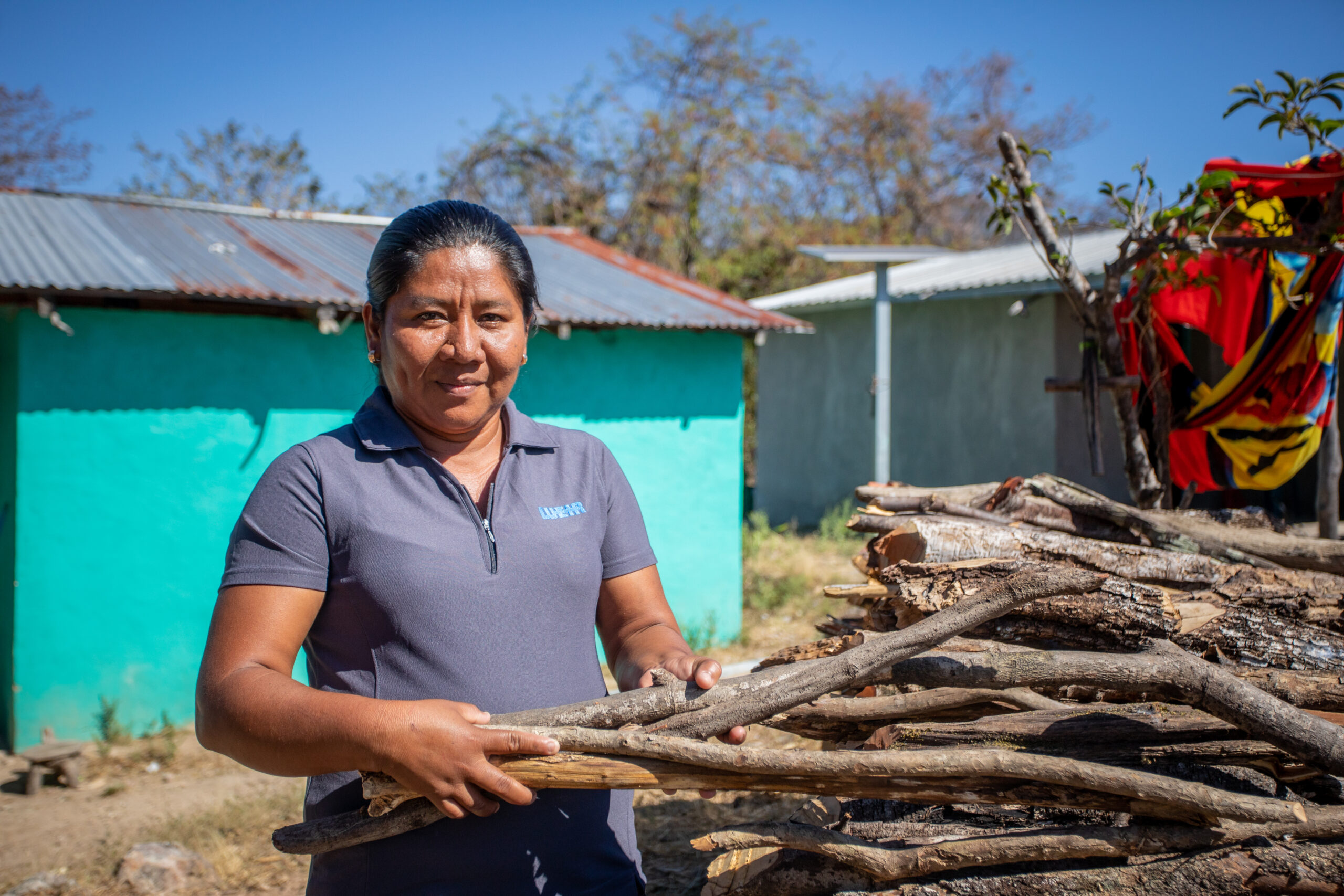Strengthening capacities and participation of women in Honduras
Story

The financial inclusion of women benefits everyone in a community. Aleida Garcia Gomez has seen first-hand how women can support one another to improve access to resources and actively participate in their communities.
“If this project were not in the community, I would not have even one lempira saved,” says Aleida, a 35-year-old Indigenous woman of the Los Lenca people from the community of Palagua, Honduras.
While she has happy memories of growing up in this strong, cooperative community, Aleida’s family was very poor, and it was not possible for her to continue school after the sixth grade. This is not uncommon in her community, as girls tend to stay at home to help their mothers with housework instead of pursuing studies.
Like many in the area, her family works in agriculture to meet their basic needs. However, the region is often quite dry and summer winds can sometimes damage crops, a problem worsening with climate change.
This is why Aleida became one of 92 women in the municipality of Guajiquiro to take part in community-based women’s groups focused on climate adaptation training in agri-business. Together with the World Food Program (WFP), and Cuso International the project is providing gender-responsive business training to small producers, as well as saving and credit groups, to improve their economic prosperity, food security and resilience.
“I am very happy to be part of this project,” she says. “I am strengthening the habit of saving. Something I didn’t have before because I didn’t know its importance.” Aleida is now working to achieve her dreams of securing her family’s financial future and building a small home for herself. Before the program, these dreams seemed unattainable.
“My family has been low income, so it was not possible for me to fulfil my dream of studying,” says Aleida.
Aleida is now working to achieve these dreams, helping her family weather the uncertainties of climate issues and save for her new home. She has also become a more vocal champion in her community. “I have changed my participation in meetings, and I am improving the administrative part of my income,” says Aleida. “My hope is that women can have more opportunities for paid employment and training to be able to continue fighting for our rights and to be heard.”
“These are the projects that help change the lives of the poorest families,” says Aleida.